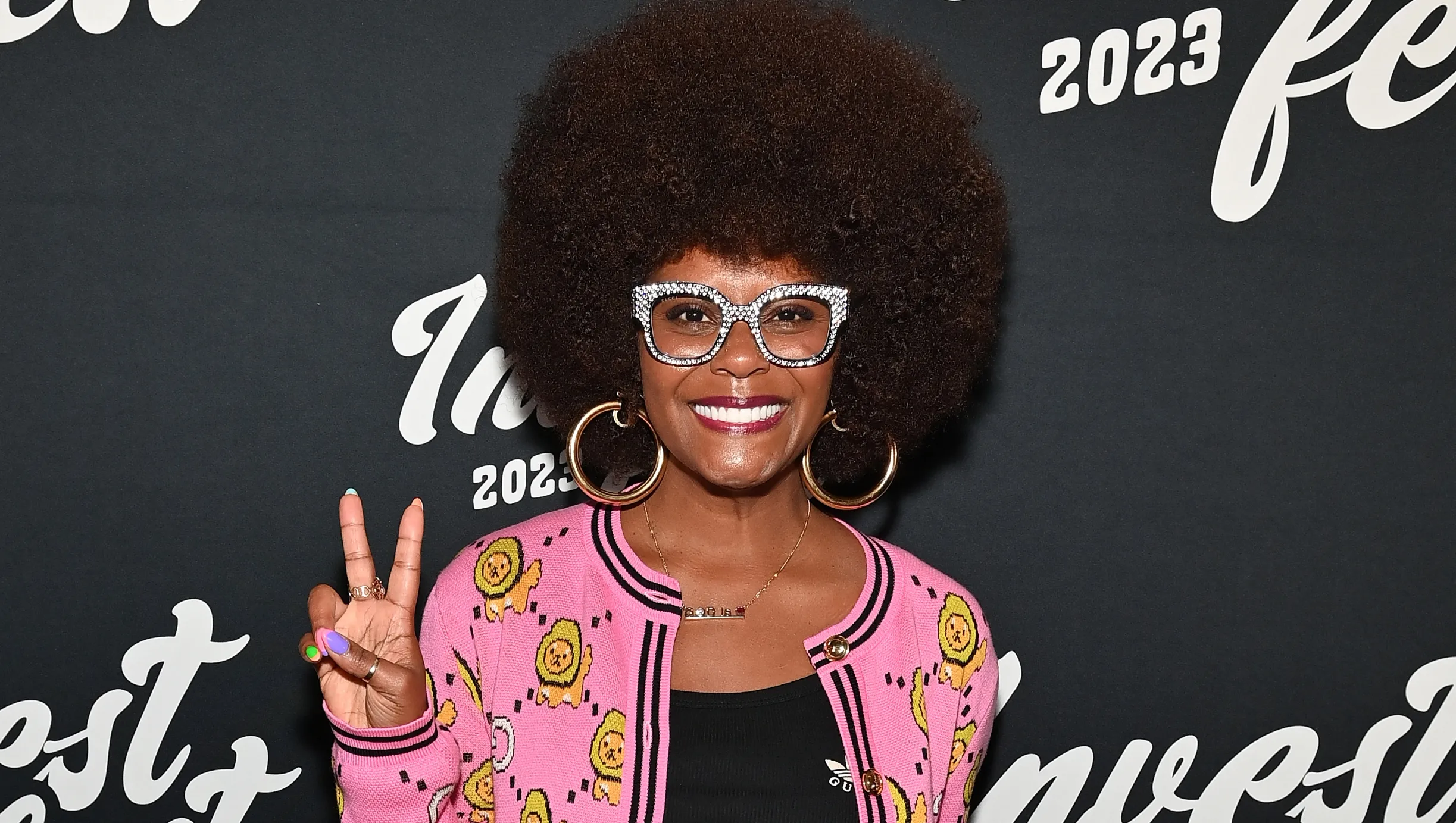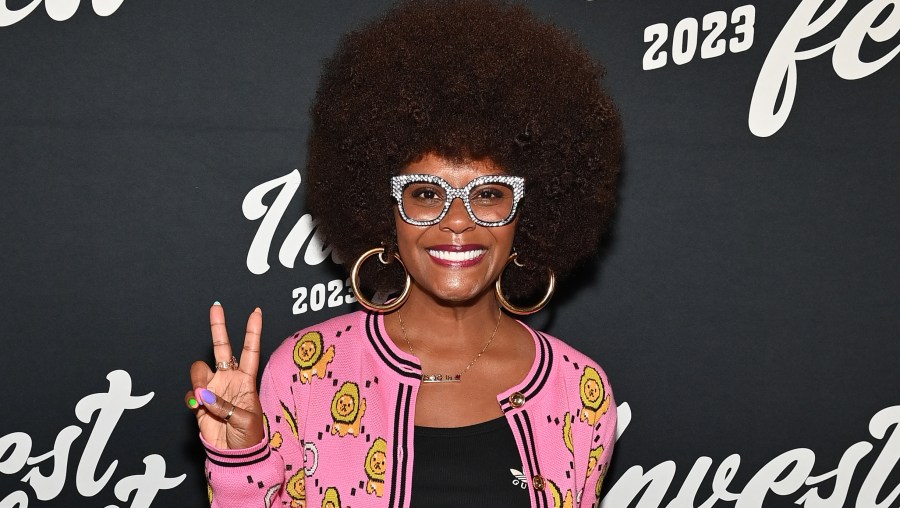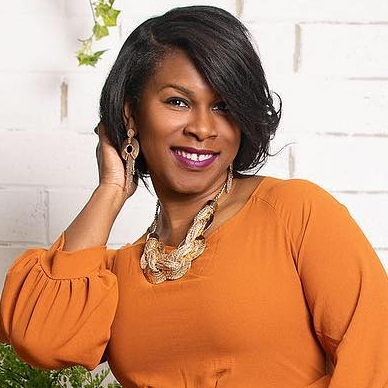No, a Beyoncé concert won’t break your soul — or Tabitha Brown’s
Tabitha Brown reportedly received online abuse from fellow Christians for attending Beyoncé’s Renaissance tour — but perhaps the faith we The post No, a Beyoncé concert won’t break your soul — or Tabitha Brown’s appeared first on TheGrio.

Tabitha Brown reportedly received online abuse from fellow Christians for attending Beyoncé’s Renaissance tour — but perhaps the faith we should examine is our own.
“Notes on faith” is theGrio’s inspirational, interdenominational series featuring Black thought leaders across faiths.
Last weekend, Tabitha Brown and her family were among a star-studded crowd who enjoyed the Beyoncé concert — and some of us lost our religion. Let me explain: Tabitha Brown, fondly known to her followers as “Tab,” posted about blessing her daughter Choyce with tickets to the Los Angeles stop of Beyoncé’s Renaissance tour. As is her custom, Brown brought us behind-the-scenes as she got ready for the concert, including details on her fashion and hairstyle choices, in compliance with the silver color scheme requested by the evening’s headliner. But as Brown, like so many others, expressed her excitement at sharing the experience with her family and friends, she also shared that her DMs were flooded with “the most evil and disgusting” messages disparaging her, her family, and Beyoncé.

Again, let me explain.
Various Christian leaders have passionately cautioned believers about going to Beyoncé’s concerts, criticizing everything from the ticket prices to the symbolic meanings that abound in her content. For example, there are decolonized references to African culture and spirituality that are lesser known in Eurocentric culture — and, hence, are often uncritically deemed demonic. (Le sigh.) Of course, Beyoncé and her team are very intentional about the integration of spirituality and sexuality in her creative output, representing the perspective and evolution of a grown, married mother of three children. Such self-possession can be threatening to anyone who has not found their voice.
However, the manner in which people engage in these debates is concerning; some have even resorted to disparaging the megastar and her concert attendees. And though Beyoncé has long expressed her faith and Christian upbringing, her critics maintain that she is disingenuous.
Those who are incensed may be missing at least two crucial spiritual lessons in their assessment of this scenario: Even in the times when we do not agree with or comprehend the moves a person is making, especially when they make us privy to their movements, our primary role should be to support their discernment. Unfortunately, we all too often resort to ridicule when attempting to compel people we love or admire to make wise decisions. Secondly, when we do caution, do we consider how luminaries like Beyoncé experience the way we speak of them? Do we believe celebrities are exempt from experiencing our conversations as harmful to them and their families?
So, what then does it look like for someone who moves in a sphere of influence to gauge where they should socialize? Entertainers in the industry need faith and community, just like everyday people. As a rising star in that industry and a presumable fan, Tabitha Brown stands a good chance of not only impacting fellow concert attendees, she might also resonate with Beyoncé. In biblical terms, this is what being “salt” and “light” looks like, bringing flavor, preservation, and shine to every place we enter. As the boundaries between celebrities and everyday people are increasingly erased, this scenario gives us an opportunity to think about not just living our lives but also what it looks like to go where the Creator leads us, as we read in Isaiah 6:8.
Then I heard the voice of the Lord saying, “Whom shall I send? And who will go for us?”
And I said, “Here am I. Send me!”
As rational people, we know we cannot please everybody, no matter how popular we are. But ironically, Brown’s magnetic quality is rooted in ethicalism, whether persuading her followers and industry peers to try things they’ve never tried before, like trying veganism, loving unabashedly, or taking leaps of faith. I first encountered Brown in 2018 when she did a review of vegan sausage to illustrate just how luxurious plant-based eating can be. Her testimonial motivated meat-loving me to try the vegan sausage and even explore vegetarianism for a season. And basically the whole world — well, at least most of Blackdom — got to know Brown even better when she masterfully (and gracefully) clapped back after Wendy Williams commented on her decision to bless her husband with early retirement from law enforcement.
Just last week, sports commentator Shannon Sharpe divulged that following an interview with Brown several months ago, she shared with him a dream where she believed God had given her a word for him. It is in Brown’s faith tradition that whenever God gives a revelation about someone she is to interact with, it is her duty to share the message with them. Unbeknownst to her, she delivered a message Sharpe sorely needed as he took a professional leap of faith in the entertainment industry. He said Brown was spot-on and could not have known what he was praying about before they met.
If loving people with the love of the Lord was personified, it might very well be Tabitha Brown — and who is to say it’s not? In Sharpe’s eyes and the eyes of many, she is gifted, experienced, and understands her assignment “for such a time as this” (Esther 4:14).
And what about the ways in which these conversations harm Beyoncé? She is a creative, wealthy woman whose fame no doubt precludes her from attending worship as usual. And yet, in addition to her statements of faith and defense of her values by colleagues such as Pastor Donnie McClurkin, she has found ways to continue practicing her faith discreetly and creatively.
This has been on record. So, why do we speak of Beyoncé as though she is not a believer or even a child of the Most High?
As spiritual leaders to several believers in the entertainment industry, my husband and I have walked alongside public figures as they privately process the harm generated from these conversations.
One traditional measure of a person’s faith walk is to assess what one’s pastor says of them. The recently retired — or what he calls “rewired” — Pastor Rudy Rasmus has been a years-long witness to the work Beyoncé does through her organization BeyGood in collaboration with Bread of Life, Inc. Attesting to her involvement with her home church, Pastor Rasmus displayed on his website Beyoncé’s efforts through the years: “With the latest round of funding from BeyGood, the ‘Bread of Life Academy for Tech and Healthcare Careers’ provides training and employment opportunities for young adults aging out of the foster care system and others who have experienced economic injustice.”
Is that not Godly?
Some faith leaders have led the way in seeing the humanity of these megastars and have found that it is often fellow believers who can be a distraction in a person’s faith walk. Almost a decade ago, Pastor Touré Roberts (husband to Sarah Jakes Roberts, convener of the Woman Evolve gathering) apologized for how the church has treated the former members of Destiny’s Child, Michelle Williams and Kelly Rowland. When they attended and led worship at his congregation, ONE Church in Los Angeles, Pastor Roberts felt moved to do what he called “identification repentance,” a process by which a person stands in the gap for a community and admits to the wrongs done to another party. The aim is to bring about the healing that the wronged individual needs through acknowledgment of the damage, lest they become unable “to hear” or be receptive to moving forward with the group that has offended them.
With his gesture, Roberts enacted evidence that nothing and no one “can separate us from the love of God,” as written in Romans 8:38-39.
In the digital age, the confluence of online celebrity and deeply rooted faith presents a unique negotiation. Tabitha Brown challenges us to reflect on the balance between public presence and personal spiritual discernment. Her decision to attend Beyoncé’s concert goes beyond mere entertainment; it signifies an unwavering dedication to her spiritual path, even in the face of critique. As we navigate our online identities and spiritual quests, Tabitha’s actions serve as a reminder to prioritize authenticity and grace in every interaction.
Each one of us has an assignment. Some of us are called to do important work in our local communities and may never get any shine for it. Some are called to do important work internationally or in clandestine arenas. Others are called to move throughout these settings, connecting people on every level. Whatever our assignment is, let us judge others by their fruit and trust the divinity within them. In an intentional network, we uncover not only the essence of spirituality but also the significance of staying true to ourselves in the digital realm.
Let’s sharpen and challenge each other in love as though we are in community with one another.
Lastly, as Tabitha Brown says, “I want y’all to go about y’all business. Have yourself an amazing day. But even if you can’t have a good one, don’t you go messing up anybody else’s, ya’ hear? OK. Very good. I love you!”

Rev. Dr. Alisha Lola Jones is a faith leader helping people to find their groove in a fast-paced world, as a consultant for various arts and faith organizations and professor of music in contemporary societies at the University of Cambridge in Cambridge, England. She is an award-winning author of Flaming? The Peculiar Theopolitics of Fire and Desire in Black Male Gospel Performance (Oxford University Press). For more information, please visit DrAlisha.com.
TheGrio is FREE on your TV via Apple TV, Amazon Fire, Roku, and Android TV. TheGrio’s Black Podcast Network is free too. Download theGrio mobile apps today! Listen to ‘Writing Black‘ with Maiysha Kai.
The post No, a Beyoncé concert won’t break your soul — or Tabitha Brown’s appeared first on TheGrio.












